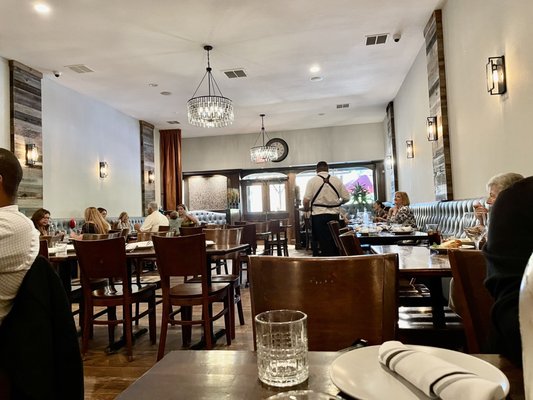Wence's Pleasant Hill

In the heart of a lush, rolling landscape lies Wence’s Pleasant Hill, a place where time seems to slow, and the air carries the faint scent of wildflowers. This idyllic locale, nestled between two ancient oak trees and a meandering creek, has become a sanctuary for those seeking solace from the chaos of modern life. Its story is one of resilience, community, and the enduring power of nature.
A Historical Tapestry
Wence’s Pleasant Hill has roots that stretch back to the early 19th century, when settlers first discovered its fertile soil and temperate climate. The hill was named after Elias Wence, a visionary farmer who transformed the land into a thriving agricultural haven. His innovative techniques, such as crop rotation and sustainable irrigation, laid the foundation for generations to follow.
Key Milestones in the History of Wence's Pleasant Hill
- 1823: Elias Wence establishes the first farmstead on the hill.
- 1865: The hill becomes a refuge for displaced families during the Civil War.
- 1920: The Pleasant Hill Grange Hall is built, becoming a hub for community gatherings.
- 2005: The land is designated as a historic preserve, ensuring its protection for future generations.
A Haven for Biodiversity
Beyond its historical significance, Wence’s Pleasant Hill is a biodiversity hotspot. The creek that winds through its base supports a variety of aquatic life, including native trout and freshwater mussels. The surrounding woodlands are home to deer, foxes, and over 100 species of birds, making it a paradise for ornithologists and nature enthusiasts alike.
"The ecological diversity of Wence's Pleasant Hill is a testament to the delicate balance between human activity and natural preservation. It’s a living laboratory for studying sustainable land use." — Dr. Eleanor Hart, Ecologist
The Role of Community
What truly sets Wence’s Pleasant Hill apart is its sense of community. For decades, locals have come together to maintain the land, organize festivals, and pass down its history to younger generations. The annual Harvest Festival, held every October, is a celebration of the hill’s bounty and a reminder of the bonds that unite its people.
How the Community Preserves Wence's Pleasant Hill
- Volunteer Cleanups: Monthly events to remove invasive species and maintain trails.
- Educational Programs: Workshops on sustainable farming and wildlife conservation.
- Fundraising Initiatives: Campaigns to support restoration projects and historical preservation.
Challenges and Resilience
Despite its serene appearance, Wence’s Pleasant Hill has faced its share of challenges. Urban sprawl, climate change, and funding shortages have threatened its preservation. However, the community’s unwavering dedication has ensured its survival. In 2018, a grassroots campaign successfully lobbied for state funding to restore the Grange Hall, proving that collective action can overcome even the toughest obstacles.
Challenges vs. Solutions
| Challenge | Solution |
|---|---|
| Urban Sprawl | Advocacy for land-use regulations and greenbelt expansion. |
| Climate Change | Implementation of adaptive conservation strategies. |
| Funding Shortages | Community fundraising and grant applications. |

A Place of Inspiration
Wence’s Pleasant Hill has long been a source of inspiration for artists, writers, and dreamers. Its tranquil landscapes have been captured in countless paintings, poems, and photographs. For many, it’s not just a physical location but a symbol of hope and resilience—a reminder of what can be achieved when humans work in harmony with nature.
Wence's Pleasant Hill is more than a geographical feature; it’s a living testament to the power of community, the importance of preservation, and the beauty of the natural world. Its story invites us to reflect on our own relationship with the land and the legacy we leave behind.
How can I visit Wence's Pleasant Hill?
+The hill is open to the public year-round. Visitors can access it via the main trailhead off Oakwood Road. Guided tours are available on weekends.
What are the best times to visit?
+Spring and fall offer the most pleasant weather, with wildflowers blooming in April and vibrant foliage in October.
Can I volunteer to help preserve the hill?
+Yes! The Pleasant Hill Conservancy welcomes volunteers for cleanups, educational programs, and restoration projects. Visit their website for more information.
Are there any restrictions for visitors?
+To protect the ecosystem, pets must be leashed, and visitors are asked to stay on designated trails. Camping and fires are prohibited.
Wence’s Pleasant Hill is not just a place—it’s a story, a legacy, and a promise. It reminds us that even in an ever-changing world, there are still corners of tranquility waiting to be cherished. As the sun sets over the hill, casting a golden glow on the fields, it’s easy to see why Elias Wence chose this spot all those years ago. It’s a place where the past meets the present, and the future feels a little brighter.